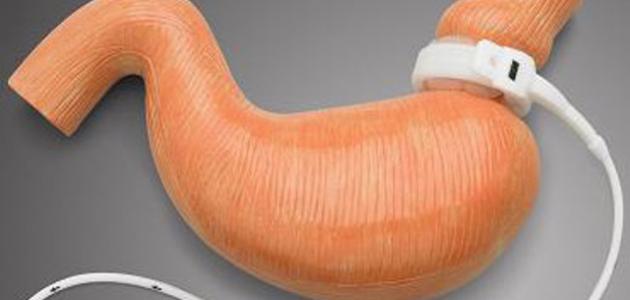Contents
Overview
It is a stomach worm infection is a very common infection that causes the emergence of many symptoms, and this infection usually spreads in poor areas where problems related to public hygiene and sanitation are widespread, but this does not exclude its spread around the world, and this infection causes many Symptoms, such as anemia, diarrhea, a feeling of fatigue and general weakness, in addition to feeling pain in the abdomen, and according to the reports of the World Health Organization, there are many types of worms that affect humans, but roundworms , and whipworm : whipworm, and hookwormshookworms) are the most effective types of these worms in the human body, and it is worth noting that these worms are transmitted to the human body and cause infection in various ways, such as eating food that contains raw and undercooked meat and fish containing larvae of these worms, or drinking water contaminated with the eggs of these worms. Worms, or due to not washing your hands well, especially after touching soil contaminated with the worms' eggs. These eggs may be transmitted throughThe mouth settles in the intestine, causing infection. [1] [2] What should be noted is that the symptoms associated with this infection may not appear immediately after infection, as their appearance is related to the number of worms in the abdomen as the emergence of symptoms requires the presence of large numbers of these worms Thus, symptoms may appear in some cases months after exposure to the initial infection, and this period is known as the incubation period, and the spread of infection may occur during any time since the presence of worms in the abdomen. [3]
Treating abdominal worms infection
It is believed that abdominal worms are a dangerous health condition that requires immediate treatment, but in fact, not all cases of stomach worms infection require any type of treatment, so those infected with a strong immune system can fight this infection without resorting to the use of any treatment, as the doctor first requests Monitor the health of the infected person, if the body is able to fight the infection, the doctor does not ask to use any treatment, but in some cases some symptoms may appear in which the doctor uses to prescribe anti-parasite medicines, he may prescribe one or more types, according to what the situation requires, and among these symptoms: vomiting , Feeling very tired, the appearance of blood in the stool and its change in its color, and the appearance of symptoms of dehydration on the injured, and suffering from a fever for more than two days. [4]
There are also many types of drugs that can be used when infected with abdominal worms, and they are called anthelmintic, and the duration of treatment is usually very short and this depends on the type of worms that the person was infected with, [5] , so determining the type The worms that cause the disease are important matters that help determine the appropriate type of treatment. The medicinal options used for each type of worm can be summarized as follows: [4]
- Tapeworms: Praziquantel is the first choice for treating tapeworms , and Niclosamide can be used as another option, and it is worth noting that these drugs are taken orally and are usually a single dose. [6]
- Whipworms: There are many drug options that are used to treat this type of worms, including the drug Albendazole, and this treatment is usually resorted to when the symptoms associated with a whipworm infection begin . [7]
- Roundworms: Albendazole is the most widely used drug for treating this type of worms, and in many cases it may be required to repeat the treatment after several weeks to ensure that all the eggs of these worms are completely eliminated from the body, and the doctor usually dispenses other drug options such as iron supplements and soothing creams For the skin to relieve itchy pain. [8]
- Hookworms: Albendazole and mebendazole have proven effective for treating whipworms, and the duration of treatment usually lasts from one to three days, and mebendazole is one of the medicines that can be used to treat adults and children over the age of two years, and it is not recommended for pregnant and lactating women, except that it is taken by eye. Consider some exceptions in the event that treatment is necessary, it may be used to treat children over the age of six months, and it can also be used to treat pregnant women in the second and third trimesters of pregnancy if the situation so requires, in addition to the above, the doctor may prescribe iron supplements for patients suffering from Anemia. [9] [5]
- Intestinal flukes: Praziquantel is the first choice for treating many types of intestinal flukes, and it is usually taken in the form of a single dose to be determined depending on the patient's weight, and it is recommended to take this drug with drinking quantities of fluids while eating a meal. [10]
- Nematodes: is both drug mebendazole and Albebarazin of most drugs commonly used to treat this type of worms, and it must be noted that the treatment of this type of worm is not limited to the patient who shows symptoms but must All family members receive treatment, because the probability of transmission to family members reaches 75%. [11]
It is worth noting that the principle of work of drugs for treating abdominal worms is generally to get rid of worms in two ways, either by preventing them from absorbing the sugar that you need for the continuation of life, and it should be noted that this method helps get rid of worms only without eggs, and examples of These drugs are mebendazole, and albendazole, and the other way is to cause helplessness of the worms, which causes them to slip from the intestinal wall and excrete in the stool. Examples of these drugs are: praziquantel and Ivermectin. [5]
Tips to prevent infection with stomach worms
Many tips can be followed to prevent infection with stomach worms , and among these methods we mention the following: [12]
- Change the patient's bed linen daily and wash them with hot water.
- Keeping nails clean and trimmed.
- Clean the toilet base frequently.
- Drink sterile or boiled water in places where worms are spreading. [13]
- Ensure that you wash your hands well after using the toilet, touching the soil, and before eating or preparing food. [13]
- Eliminate dog and cat feces as soon as possible. [13]
- Wash vegetables and fruits and sterilize them well. [13]
- Avoid sitting, playing, or walking directly barefoot on soil or sand that could be contaminated with animal or human faeces. [1]
- Avoid eating raw or undercooked meat. [4]
References
- ^ A b "intestinal of Worms" , Www.fitfortravel.nhs.uk , Retrieved 19-1-2019. Edited.
- ↑ "Intestinal worms" , www.who.int , Retrieved 19/1/2019. Edited.
- ↑ "Worms - including symptoms, treatment and prevention" , www.sahealth.sa.gov.au , Retrieved January 21 , 2019 . Edited.
- ^ A b v "intestinal worms , In Humans And Hwy Symptoms" , www.medicalnewstoday.com The , Retrieved 21-1-2020. Edited.
- ^ A b v "worm Medicines" , Patient.info , Retrieved 21/1/2019. Edited.
- ↑ "Tapeworm infection - beef or pork" , medlineplus.gov , Retrieved 21/1/2019. Edited.
- ↑ "Whipworm infection" , medlineplus.gov/ , Retrieved 21/1/2019. Edited.
- ↑ "Roundworms: Management and Treatment" , my.clevelandclinic.org , Retrieved 2-2-2020. Edited.
- ↑ "Parasites - Hookworm" , www.cdc.gov , Retrieved 21/1/2019. Edited.
- ↑ "Intestinal Flukes Treatment & Management" , emedicine.medscape.com , Retrieved 2-2-2020. Edited.
- ↑ "Enterobiasis" , www.hse.ie , Retrieved 2-2-2020. Edited.
- ↑ "Worms - including symptoms, treatment and prevention" , www.sahealth.sa.gov.au , Retrieved 2-2-2020. Edited.
- ^ A b t w "In Humans of Worms" , Www.nhs.uk , Retrieved 2-2-2020. Edited.





